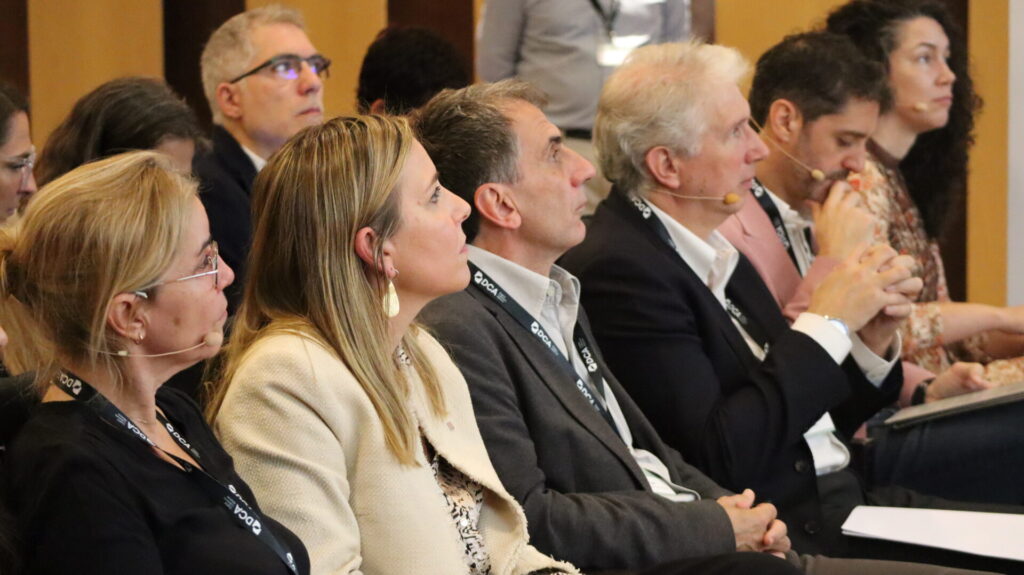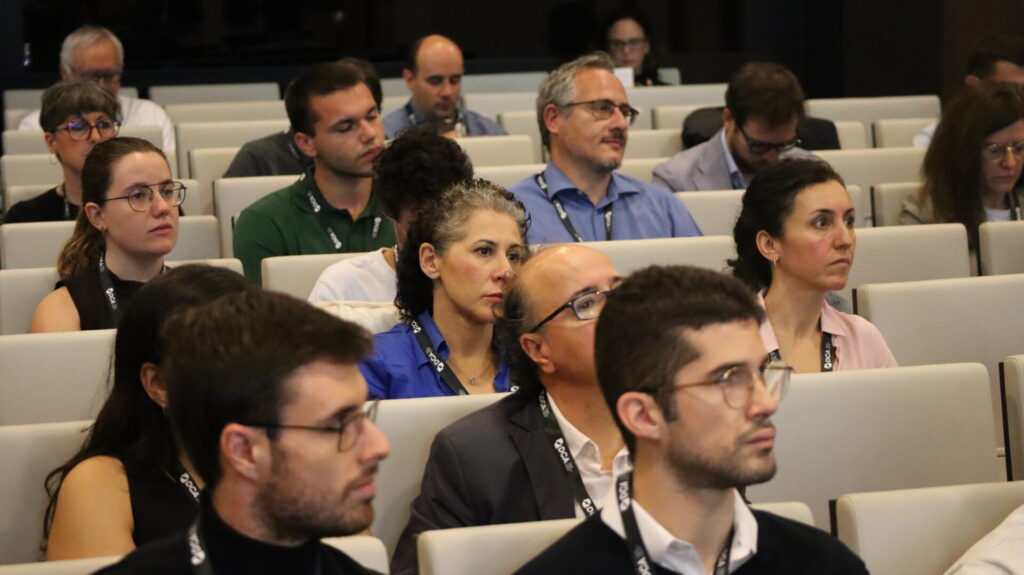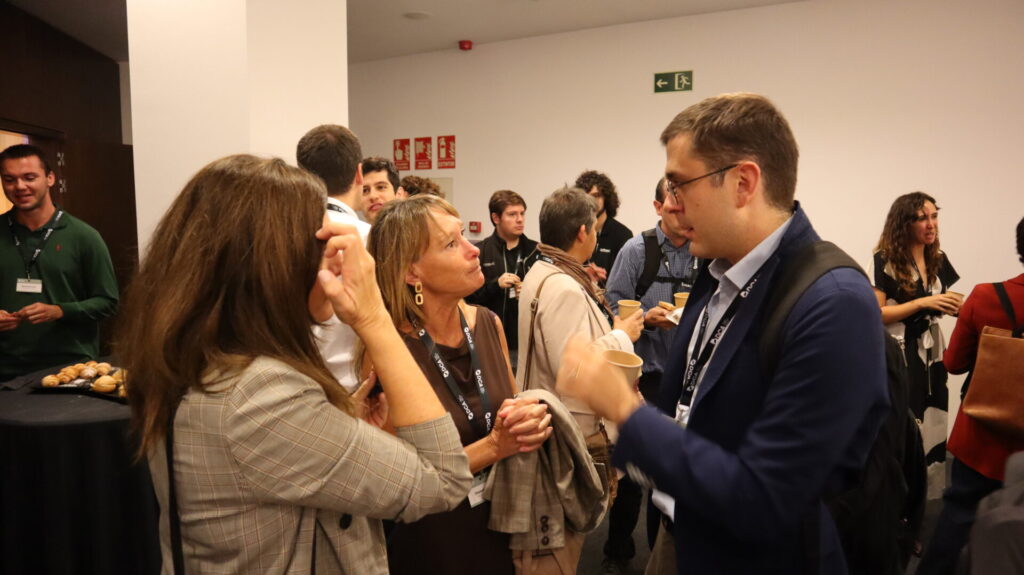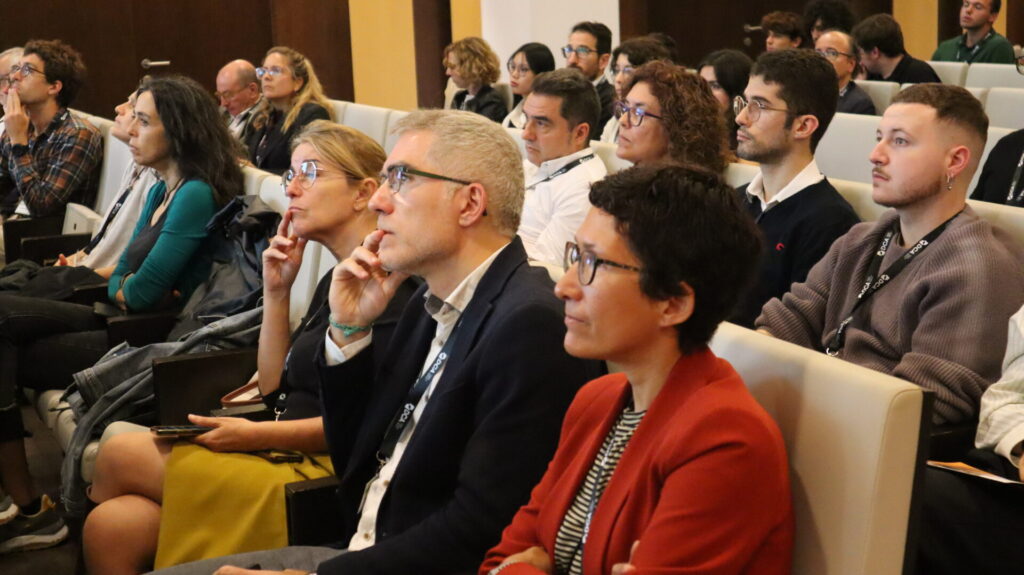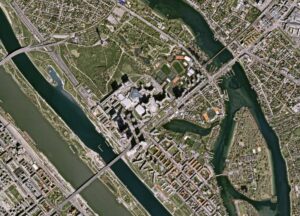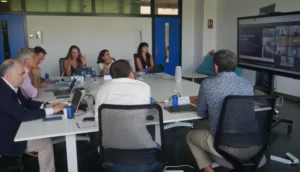ESA Phi-Lab Spain showcases innovative space projects and new opportunities at its Barcelona event
The session brought together key players from the space ecosystem to discuss innovative projects, climate resilience solutions, and new opportunities for collaboration and support.
Barcelona, 3 November 2025
The last ESA Phi-Lab Spain session, celebrated on 30 October at Palau Macaya (Barcelona), gathered public institutions, research centers, and companies to present the latest opportunities for space-driven projects focused on climate resilience.
The session began with a welcome from José María Pérez, Head of National Programs and Industry at the Spanish Space Agency (AEE) and Josep Colomé, Director of the Area of Promotion of the Catalan Space Sector at the Institute of Space Studies of Catalonia (IEEC), leader of the consortium of 12 entities that coordinates the programme.They highlighted the importance of collaboration between public entities, research centers, and private companies to generate added value applicable to both public and private sectors.
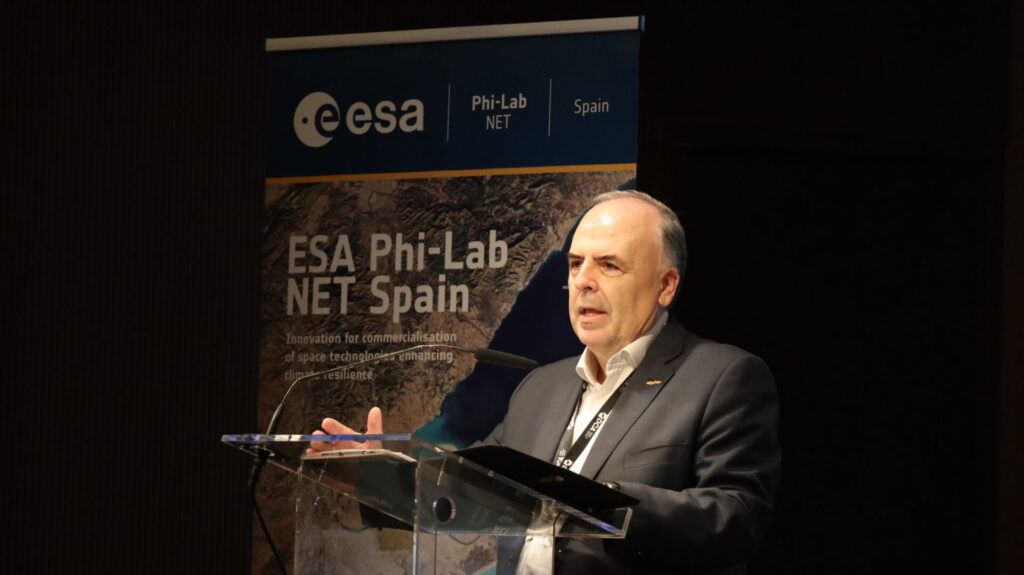
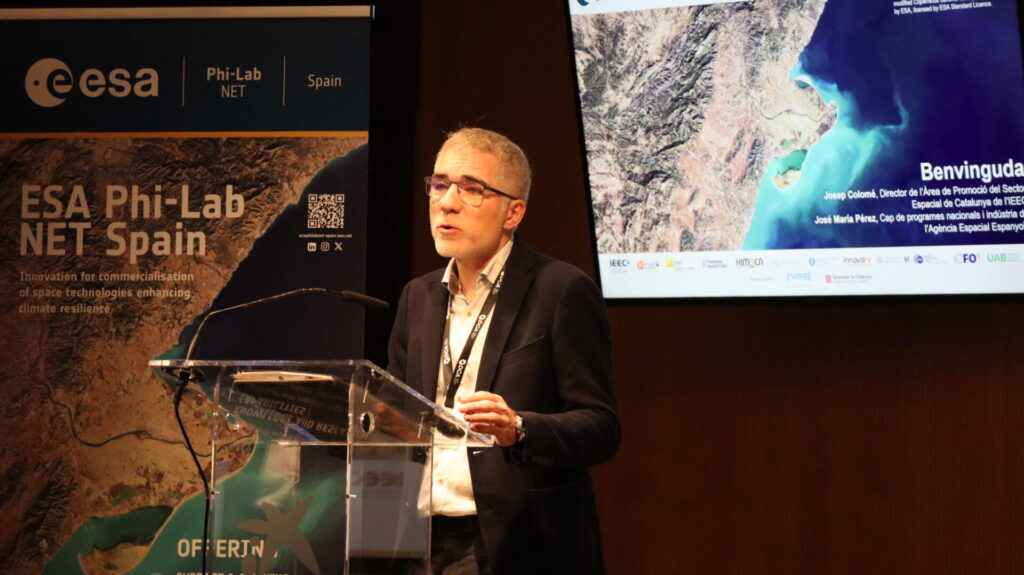
They emphasized the quality of the four projects selected in the first cut-off date, noting that they demonstrate the region’s talent and show how collaboration can multiply capabilities.
“These initiatives can translate into transferable knowledge, new opportunities, and skilled employment, showing the significant impact the space sector can have on society” – José María Pérez.
During the presentation of the ESA Phi-Lab Spain programme, Pepa Sedó, Head of the Development and Innovation Office at the IEEC, and Estel Blay, Programme Manager of the same office, introduced the network and its services, and explained the requirements of the new cut-off date, scheduled for 24 February 2026.
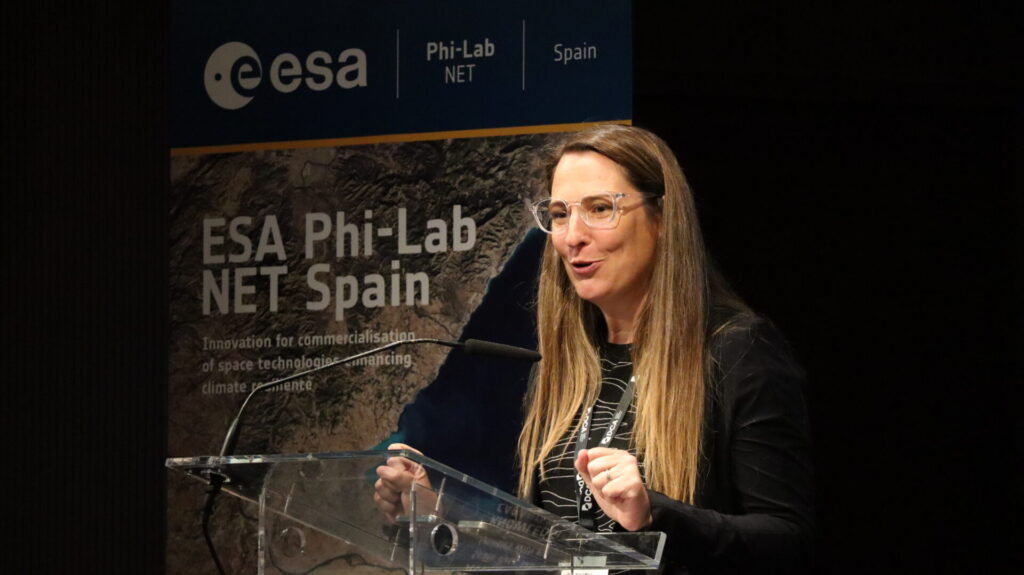
The event offered a comprehensive overview of the programme and its initiatives, showcasing innovative projects, fostering dialogue, and strengthening connections across the space community. Here you can find the ESA Phi-Lab Spain presentation.
Earlier in the day, participants attended the Annual DCA-NewSpace Meeting, organised by the i2CAT Foundation, where they learned about the main objectives of the Catalonia Space Strategy 2030 from Maria Galindo, Secretary of Digital Policies of the Generalitat de Catalunya.
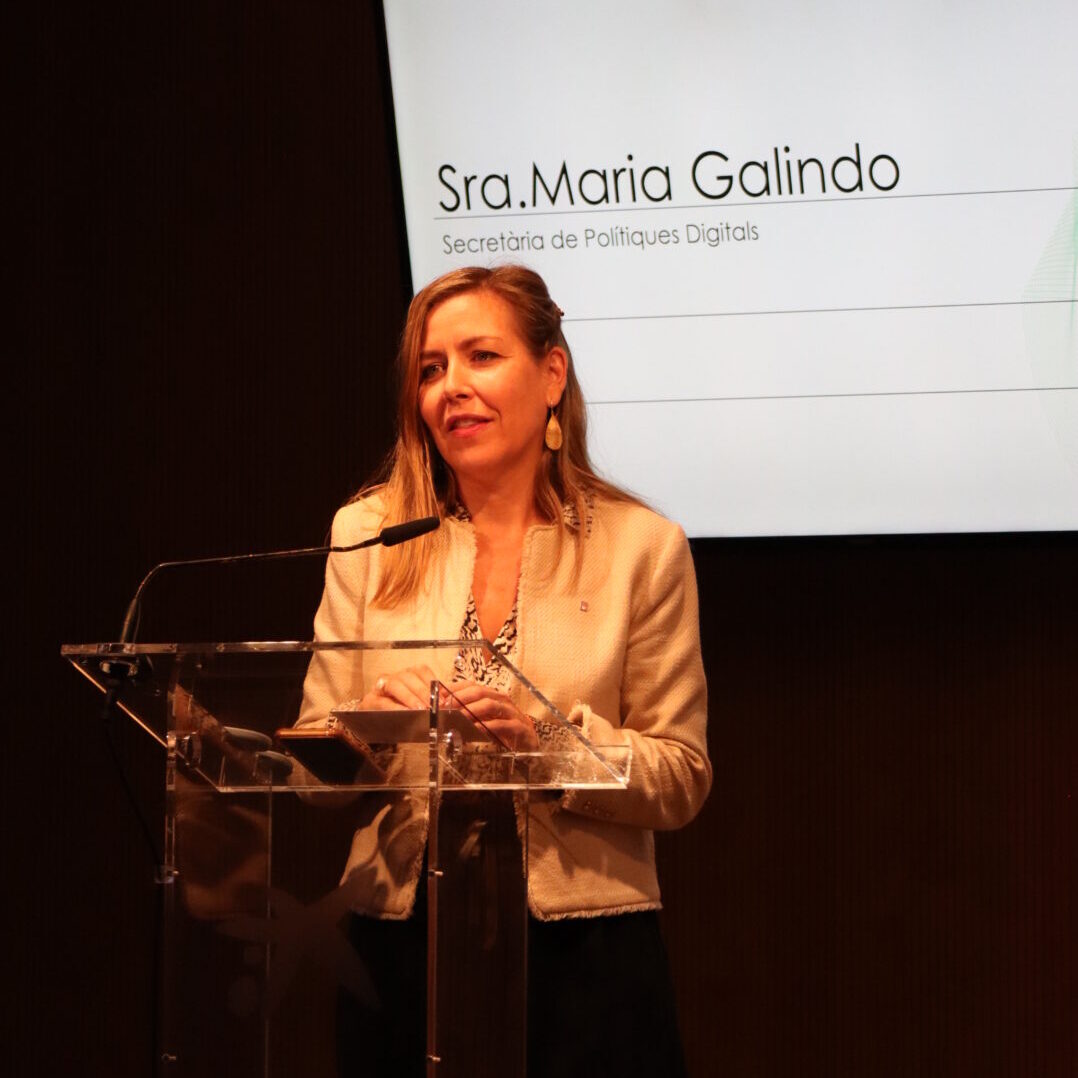
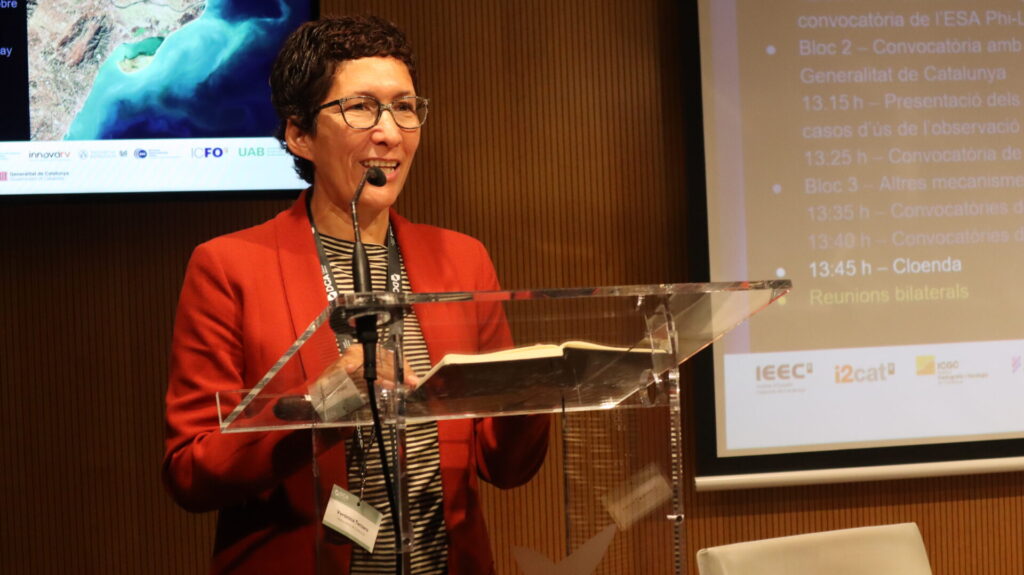
Projects to address climate resilience challenges and real-world solutions
The session featured presentations from the projects selected in the first ESA Phi-Lab Spain cut-off date:
- WAVESS – Roger Huerta, Founder and CEO of Spascat
- RISKCHAIN – Alba Germán, Data Scientist and Earth Observation Specialist at Earthpulse
- RESCAT – Albert Garcia, Senior Researcher at IsardSAT
- SKOP – Joan Saladich, Co-founder and CEO of Geoskop
Speakers highlighted that the projects not only advance space technology, but also address climate resilience challenges and provide real-world solutions for society.
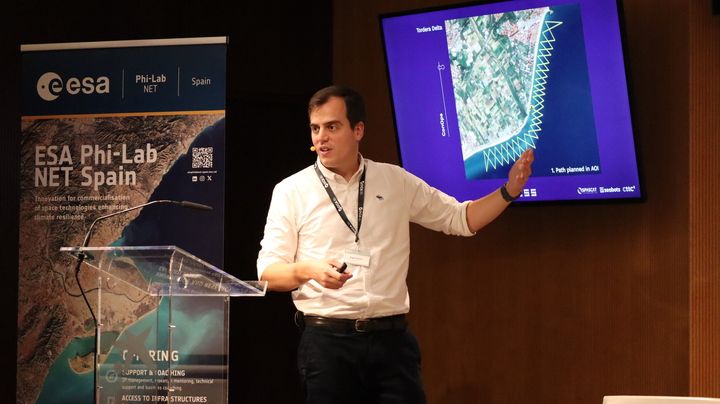
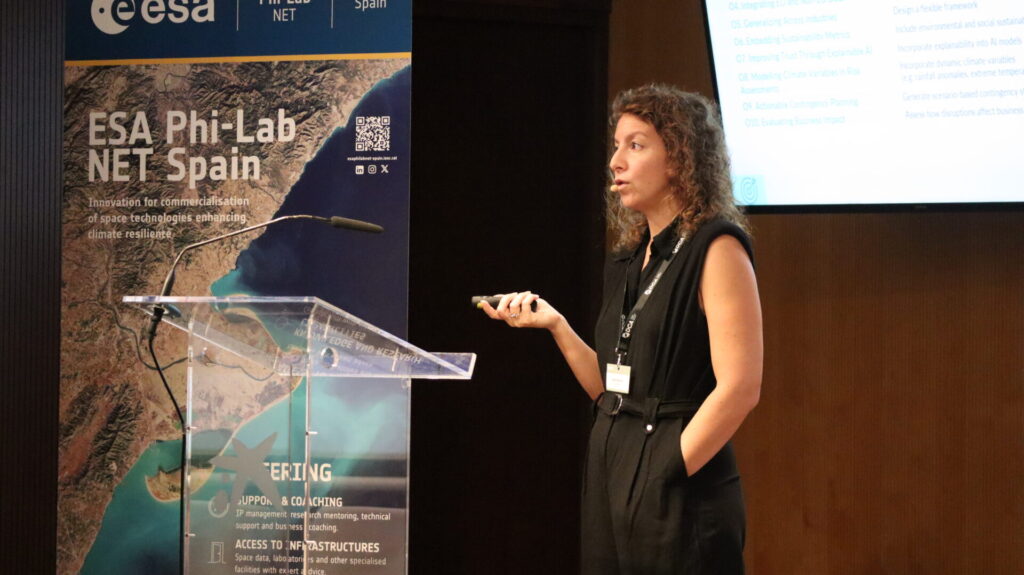
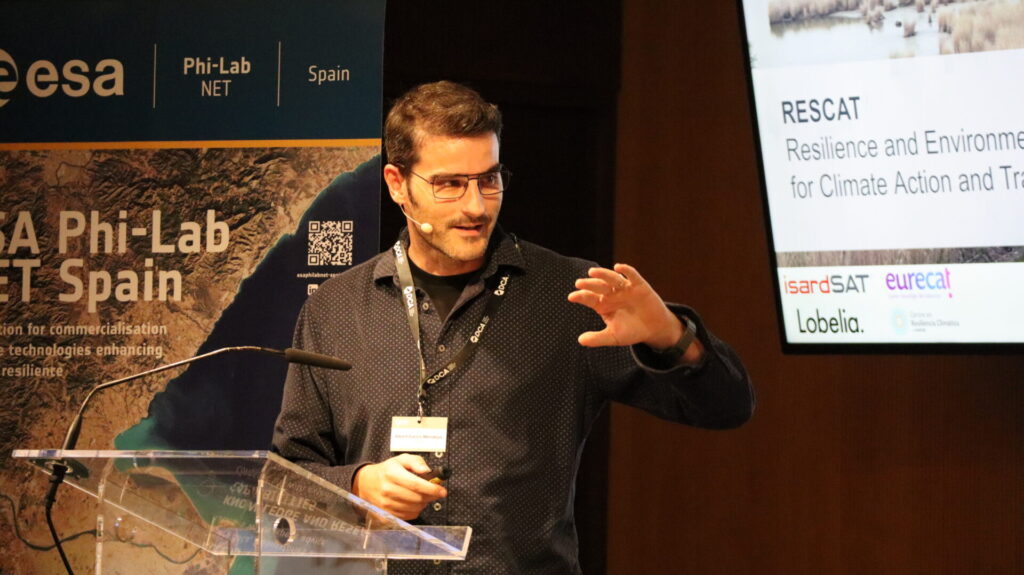
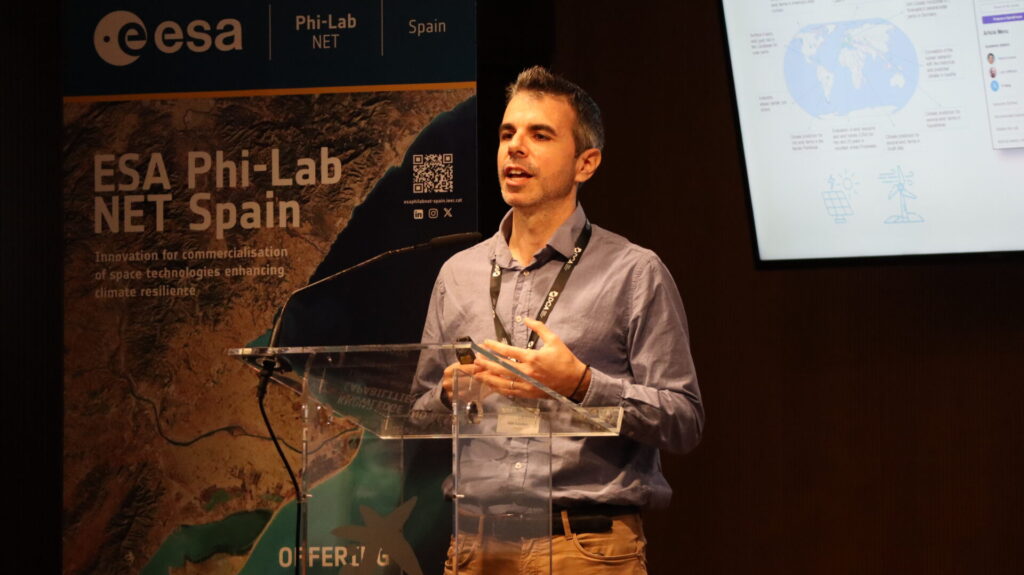
Following the ESA-funded projects, Verónica Tercero, Coordinator of the Space Strategy of the Generalitat de Catalunya, introduced the Catalonia Space 2030 Strategy-funded initiatives. Estefanía Blanch, Earth Observation Project Manager at the IEEC, presented the results of a contest focused on Earth observation use cases for the private sector, while Lluís Montilla, Project Manager of the Infrastructure Office at the IEEC, presented the ESA payload opportunities, giving participants insights into upcoming calls and submission deadlines.
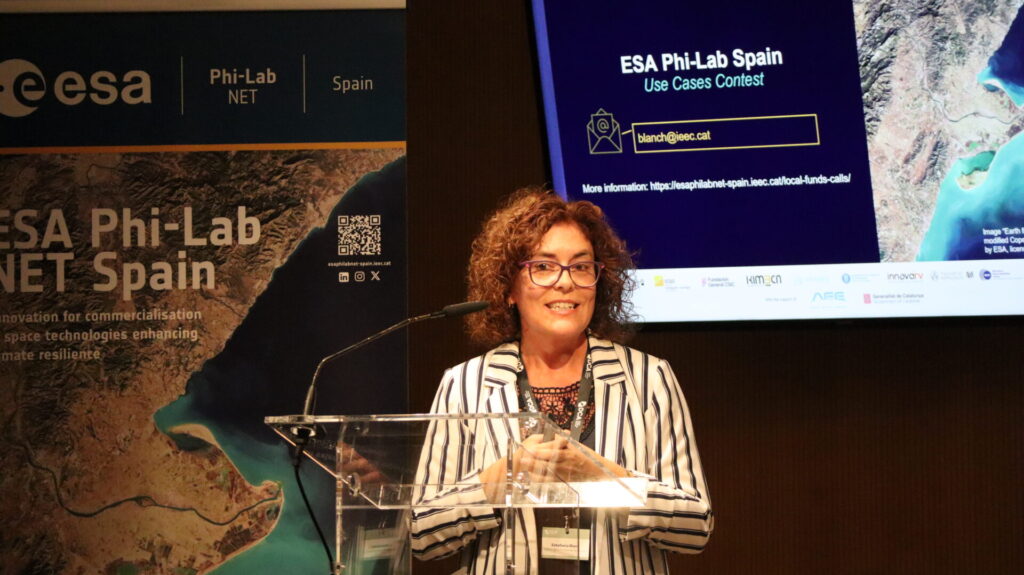
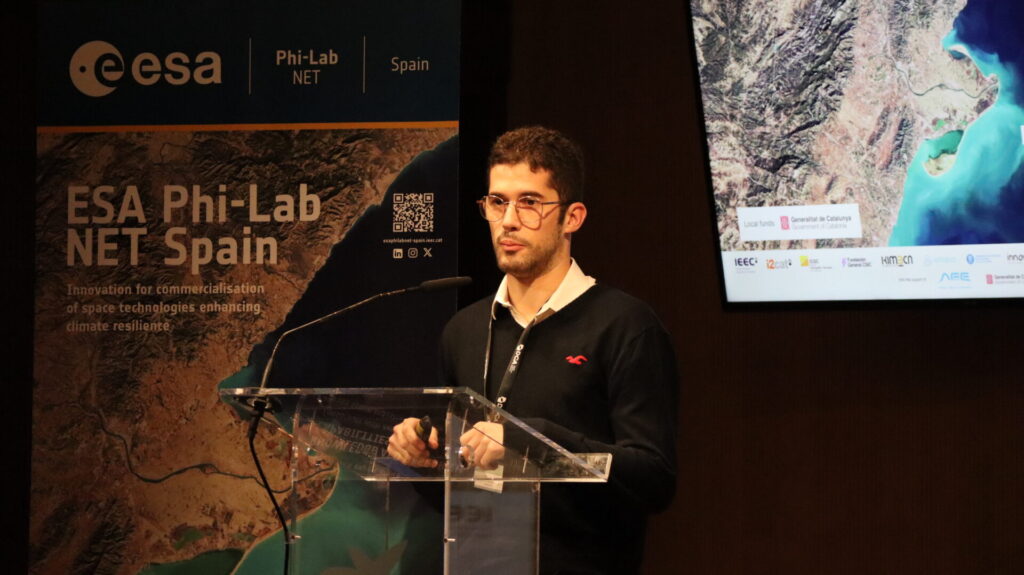
The session included presentations on additional support mechanisms, such as ESA BIC Barcelona (Cristina Protasio) and the ESA Technology Broker (Manuel Laborda), providing participants with multiple pathways for further innovation and commercialization. The day ended with networking and B2B meetings, fostering connections and collaboration within the space community which are expected to translate into successful project proposals in the future.
The session provided an opportunity to highlight how the ESA Phi-Lab Spain supports through a high-quality consortium and a range of tailored services, with a focus on networking to maximize project success. Particular attention was given to ensuring that projects address climate resilience, with the ESA Phi-Lab Spain team available to provide guidance to help proposals meet these objectives.
Discover ESA Phi-Lab Spain: Upcoming Opportunities
During November, there are three more opportunities to get to know the ESA Phi-Lab Spain program, meet the team, and discuss potential collaborations.
- 6 November: Sevilla
- 13 November: Madrid
- 26 November: Derio (Bizkaia)
About ESA Phi-Lab Spain
ESA Phi-Lab Spain is a programme of the European Space Agency (ESA), supported by the Spanish Space Agency (AEE) and the Generalitat de Catalunya. The programme is part of ESA’s ScaleUp Programme, with a focus on promoting innovation and the commercialisation of space technologies to enhance climate resilience.
The programme is coordinated by the Institut d’Estudis Espacials de Catalunya (IEEC), which leads a consortium of twelve universities, research and innovation centres, and companies. These include the i2CAT Foundation, the Cartographic and Geological Institute of Catalonia (ICGC), the Fundación General CSIC, the KIMbcn Foundation, Arribes Enlightenment, the University of Valencia (UVEG), the Polytechnic University of Catalonia (UPC), the Barcelona Supercomputing Center (BSC-CNS), the Ricardo Valle Institute of Innovation Foundation (INNOVA IRV), the ESA MELiSSA Pilot Plant of the Universitat Autònoma de Barcelona (UAB), and the Institute of Photonic Sciences (ICFO).
